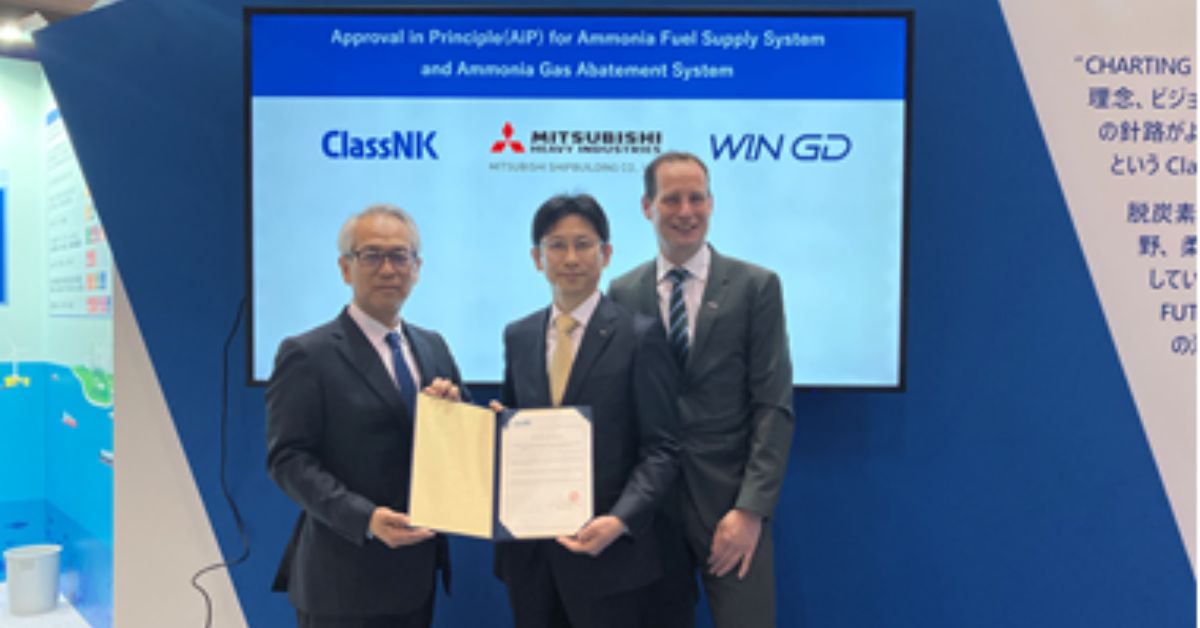ClassNK has awarded an approval in principle (AiP) for a methanol fuel supply system developed by Mitsui E&S Shipbuilding Co., Ltd.
Methanol is considered one of the promising alternative fuels for decarbonization, and a significant reduction in GHG emissions on a lifecycle basis is expected by using green methanol such as sustainable biomass-derived bio methanol and e-methanol synthesized from CO2 and renewable energy-derived hydrogen.
On the other hand, methanol poses risks in case of leakage due to its characteristics such as toxicity to humans and ease of ignition, necessitating appropriate safety measures. IMO has worked on establishing safety requirements for the use of methanol as a fuel, and “Interim Guideline for the Safety of Ships Using Methyl/Ethyl Alcohol as Fuel, IMO Res. MSC.1/Circ.1621” was released in 2020.
ClassNK has reviewed the conceptual design of the system developed by Mitsubishi Shipbuilding based on part A of its “Guidelines for Ships Using Alternative Fuels” incorporating contents of the IMO Interim Guidelines. Upon confirming they comply with the prescribed requirements, ClassNK issued the AiP.
ClassNK will continue to contribute to advanced decarbonization initiatives, including safety assessments.
Approval in Principle (AiP) At the initial stage of designing or before the specific target ship to be implemented is decided, the design is examined based on the existing regulations such as international conventions and ship classification rules, and an Approval in Principle (AiP) is issued as proof of conformity with requirements. It also prevents rework of regulatory aspects in the post-process, shortens the examination time at the time of class registration, and can be used as a technical basis for external appeal of the design status.







